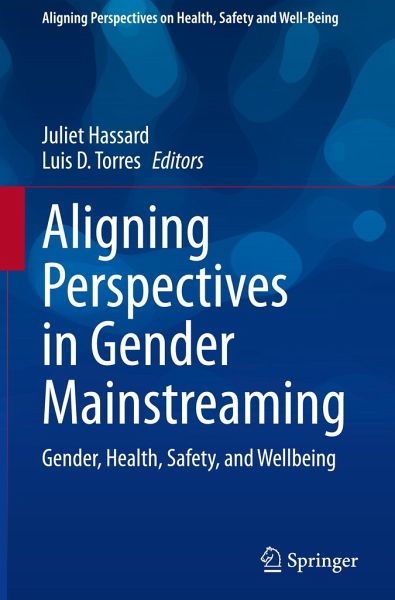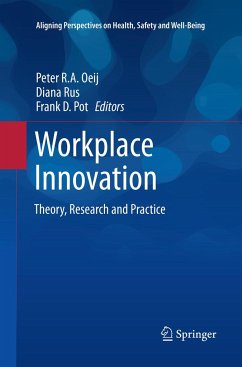
Aligning Perspectives in Gender Mainstreaming
Gender, Health, Safety, and Wellbeing
Herausgegeben: Hassard, Juliet; Torres, Luis D.

PAYBACK Punkte
53 °P sammeln!
This book brings together various threads of research in the field of gender mainstreaming. It aids in further supporting and understanding the role of gender in health and safety research, practice, and policy. It looks at gender mainstreaming as being recognised as key in cultivating sustainable worker health and working systems due to it being a central component of many international policy initiatives. This book deals with gender mainstreaming being advocated at a policy level, while focusing on the limited recognition and discourse on the issue of gender and its direct and indirect assoc...
This book brings together various threads of research in the field of gender mainstreaming. It aids in further supporting and understanding the role of gender in health and safety research, practice, and policy. It looks at gender mainstreaming as being recognised as key in cultivating sustainable worker health and working systems due to it being a central component of many international policy initiatives. This book deals with gender mainstreaming being advocated at a policy level, while focusing on the limited recognition and discourse on the issue of gender and its direct and indirect association to workers' health in the field of occupational health and safety. This book addresses problems facing gender-sensitive policies and outlines and reflects upon current best practice principles and practices to support the development and implementation of policies, interventions, and research initiatives.












